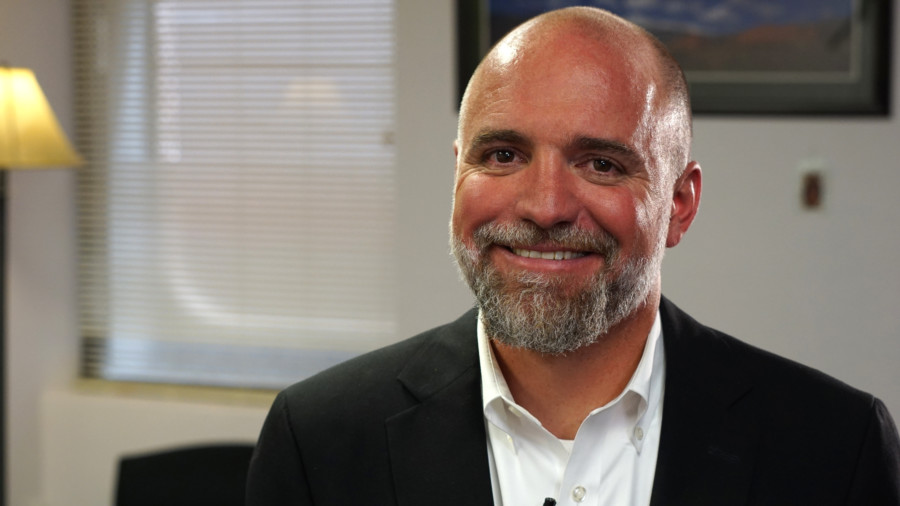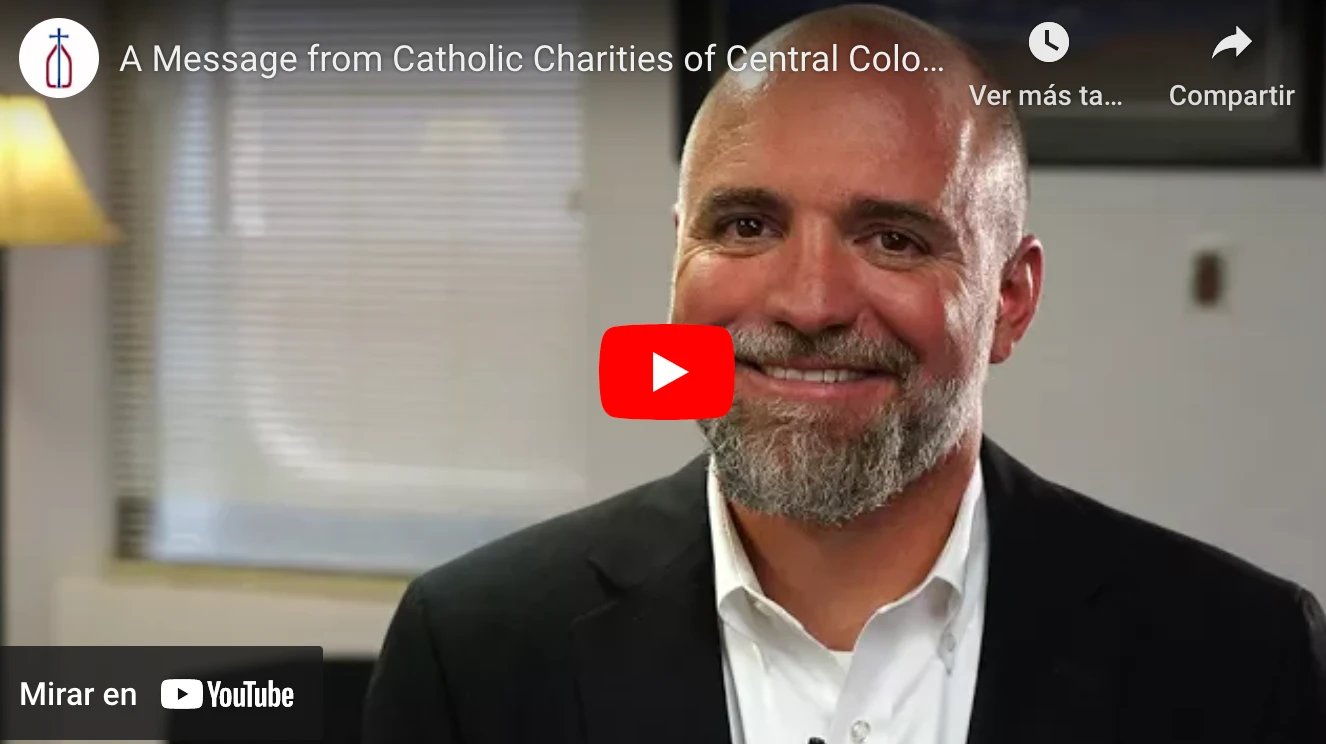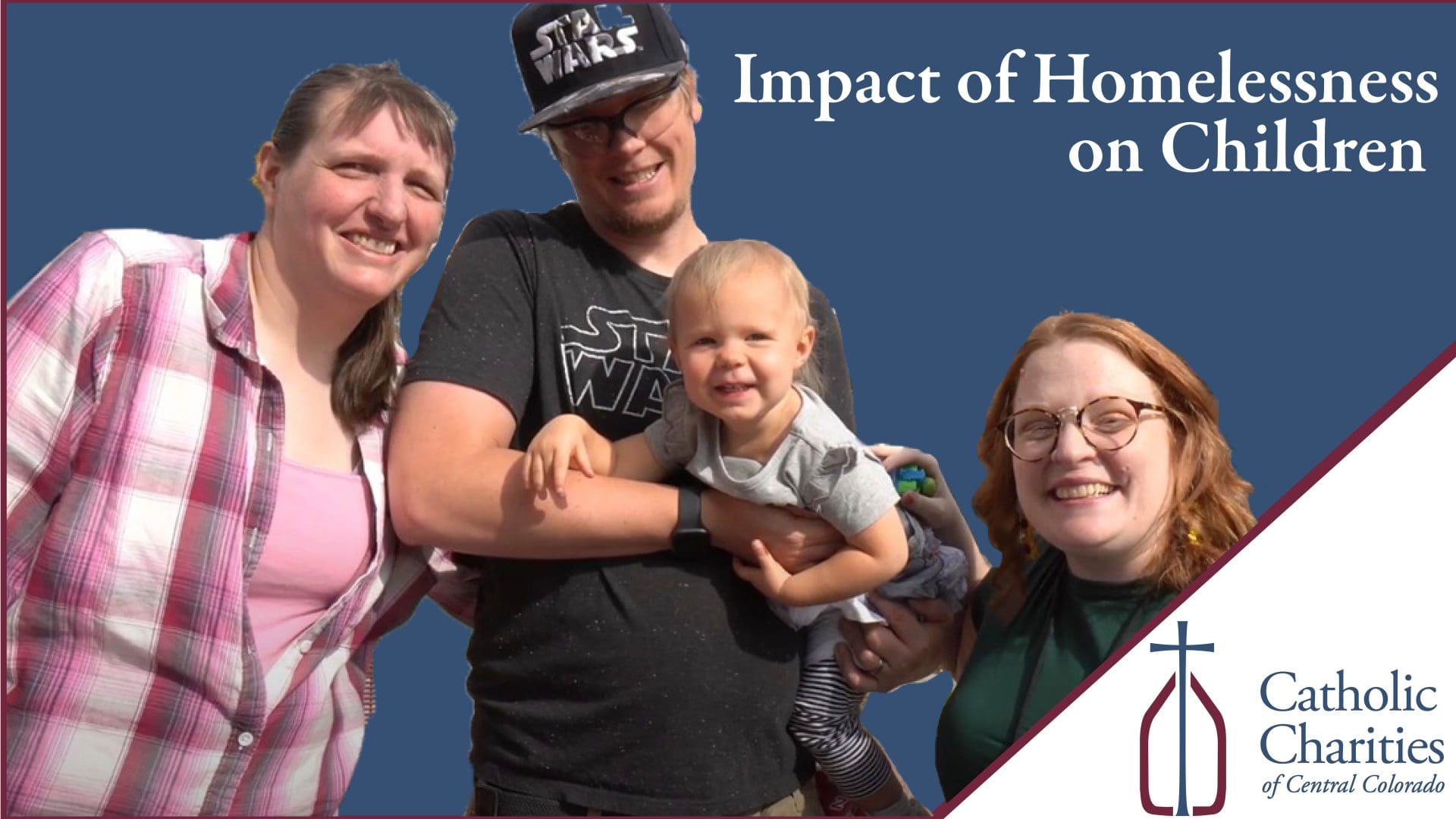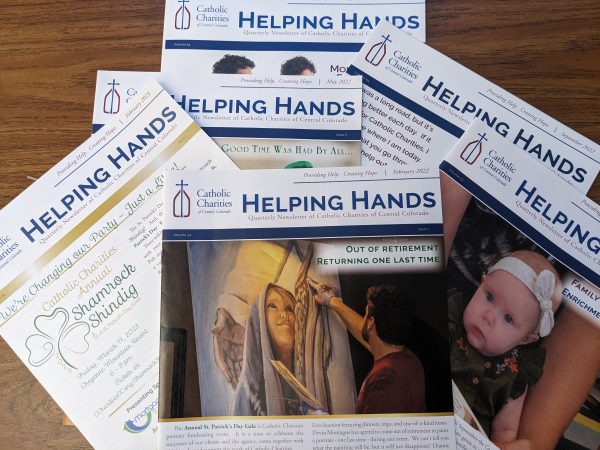
BY ANDY BARTON
In his most recent Apostolic Exhortation, “Gaudete et Exsultate,” Pope Francis has given the faithful a practical guide to holiness. “(Jesus) wants us to be saints,” our Pope writes, “and not to settle for a bland and mediocre existence… My modest goal is to re-propose the call to holiness in a practical way for our own time, with all its risks, challenges, and opportunities.” One might assume that a guide to holiness is full of rules and prescriptions on ways to live, but that is not the case with Pope Francis. As with his other writing, Gaudete et Exsultate is more of a thoughtful conversation than it is a lecture, and this one reflects its title, which translates to “Rejoice and Be Glad.”
Holiness, as Pope Francis writes, “expresses the fact that those faithful to God and His word, by their self-giving, gain true happiness.” The path, as we might expect, is challenging. Pope Francis calls on the words of Jesus, taken from the Beatitudes, what he calls “a Christian’s identity card,” to help guide the way. His guidance on the second Beatitude, “Blessed are those who mourn, for they will be comforted,” raises some of the exhortation’s most important and uncomfortable observations about ourselves: the discomfort that we feel when we encounter those who are suffering and, paradoxically, the joy that comes from embracing them.
There is innate pain in seeing another human experience sickness, poverty, violence, homelessness, or any of the other evils that find their way into human lives. Our natural instinct is to seek comfort, which means the easiest response is often to look away from the suffering, to vilify it, find differences and identify fault. Pope Francis calls this response the “averted gaze,” writing, “Much energy is expended on fleeing from situations of suffering in the belief that reality can be concealed. But the cross is never absent.”
Often, our society averts its gaze actively. We call for homeless services to be located on the fringes of our communities so that we do not have to see the lines of people waiting to get in. We seek the deportation of immigrants instead of facing the hard task of fixing a system that most experts acknowledge is broken. What we frame as responses are often attempts to hide problems from sight. There are many dangers in this approach, but perhaps the biggest is the one it poses to our own souls. As Pope Francis writes: “A person who sees things as they truly are and sympathizes with pain and sorrow is capable of touching life’s depths and finding authentic happiness. He or she is consoled, not by the world, but by Jesus.” When we look away or try to find ways to ignore or hide the struggles of our brothers and sisters, we are depriving ourselves of the opportunity for true happiness. We are also exacerbating the very problems we do not want to see.
Interestingly, what we think of as charity can also be a way of distancing ourselves from suffering. Panhandling is a prime example of this challenge. If we give someone our loose change or a couple of dollars and then drive away, we are not comforting their pain or sorrow. Instead, we are alleviating something in ourselves – spending a small sum of money to help extract ourselves from an awkward moment or mitigating our guilt. As Pope Francis observes, charity in its true form, must be accompanied by justice, some small act to encounter and make right the inequities that are at the root of suffering. When relating the experience of encountering “a person sleeping outdoors on a cold night,” Pope Francis never mentions giving money. “I can respond with faith and charity and see in this person a human being with a dignity identical to my own… an image of God… Even if helping one person alone could justify all our efforts, it would not be enough.” Instead, he writes, we must seek social change. We need to find a way to both help our brother and sister out of the cold and ensure that others do not find themselves there as well.
I fear this may be an unintended consequence of an initiative adopted by the City of Colorado Springs last month to curb panhandling. HelpCOS is a “text-to-give” campaign that encourages people to text a gift to support the work of agencies providing homeless services rather than giving money to panhandlers. While Catholic Charities fully supports this initiative, it needs to be approached with eyes wide open. Our success with those we serve comes from relationships and not transactions. Because panhandling comes with no other supportive services, we believe the money given can be used for better impact. However, we must be cautious with our expectations from this campaign. While it should reduce panhandling behavior, there is a risk that texting becomes one more way for us to avert our gaze from community members in need and make their suffering more invisible.
We should not forget Pope Francis’ admonishment that the work of holiness is about our search for authentic happiness and meaning. We are surrounded and supported at Catholic Charities by people who are working tirelessly to make a difference for those who mourn. These are the people Pope Francis calls the “saints next door” – those who do not look away from the pain but instead dedicate great parts of their lives to reflecting God’s presence in the work they do. If you talk to most of them, I believe they would agree that opening their eyes and responding to suffering brings happiness and meaning to their lives. When we encounter our poor and vulnerable in meaningful ways, it is truly a reason to rejoice and be glad.
The full version of “Gaudate et Exsultate” can be downloaded at no charge from the Vatican’s website. The entire letter is well worth reading.
Andy Barton is the CEO of Catholic Charities of Central Colorado. This article was reprinted from The Colorado Catholic Herald.




